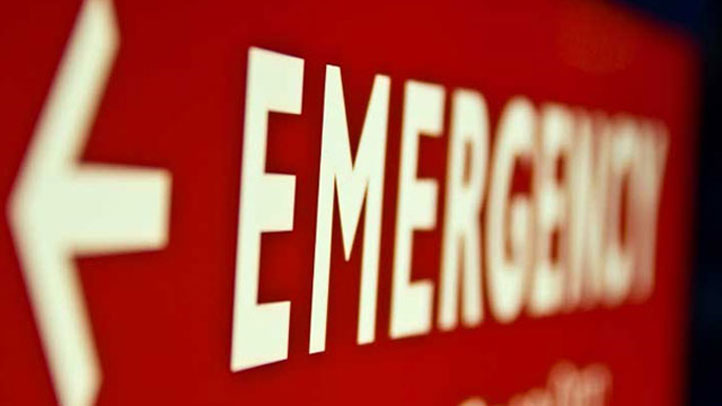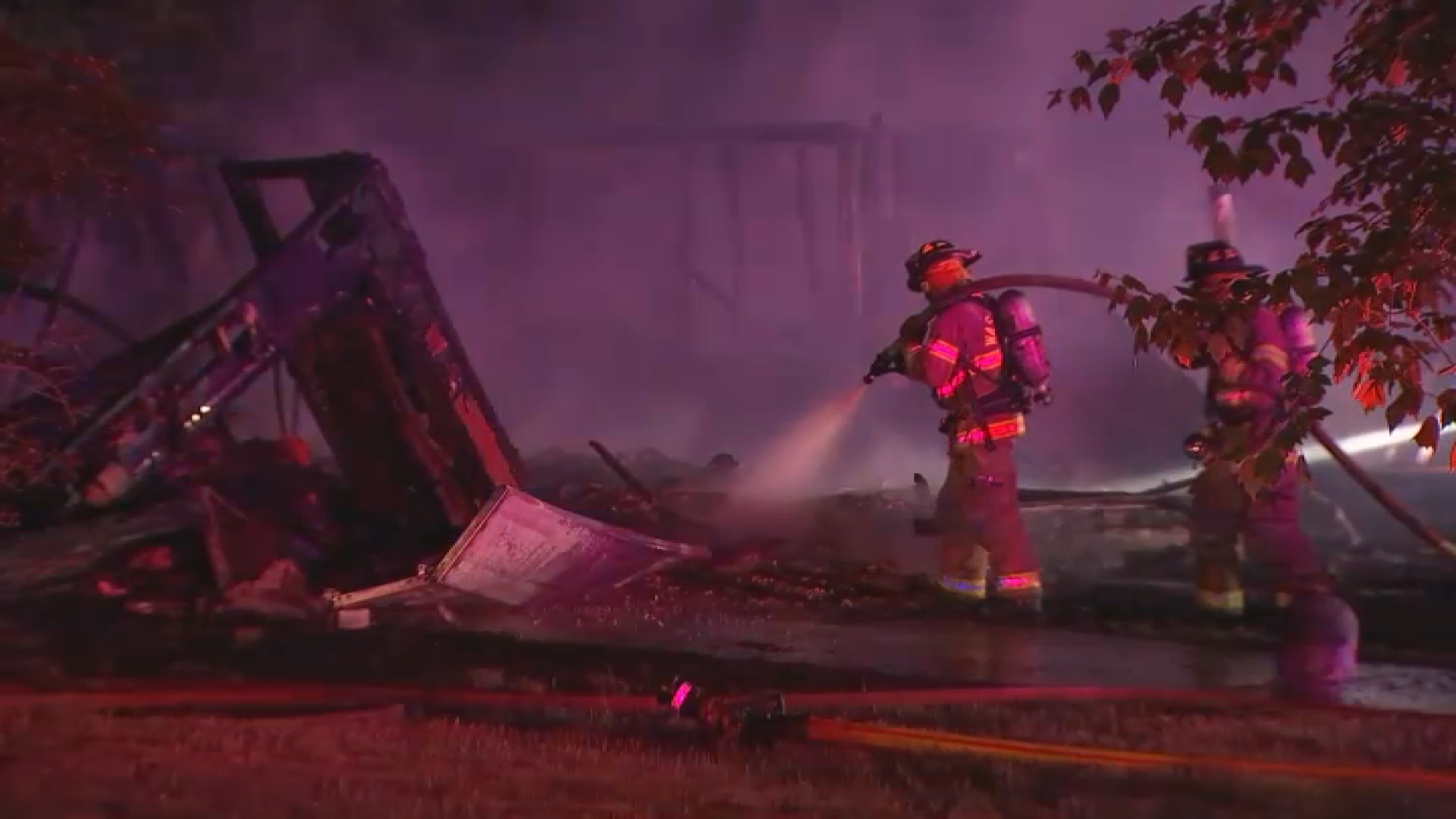Carbon Monoxide Alert: 10 Sickened on Long Island - Safety Tips
Long Island Scare: 10 Sickened by Silent Killer, Carbon Monoxide
Introduction: A Wake-Up Call on Long Island
This Thursday morning on Long Island served as a stark reminder of a silent, invisible danger lurking in our homes: carbon monoxide. Ten people were rushed to local hospitals after being exposed to the deadly gas in a Brentwood multi-family home. It's a story that makes you pause and ask, "Could this happen to me?" Let's dive into the details of this incident and, more importantly, what we can do to protect ourselves and our loved ones.
The Brentwood Incident: What We Know
Emergency responders received a 911 call around 7 a.m. from a residence in Brentwood, Suffolk County. Upon arrival, they discovered ten individuals suffering from the effects of carbon monoxide poisoning. The source, according to initial investigations and a Suffolk County Police Department press release, points to a malfunctioning oil burner. Imagine waking up feeling unwell, not realizing that an invisible threat is slowly stealing your breath. That's the terrifying reality these Long Islanders faced.
The Culprit: A Malfunctioning Oil Burner
While the investigation is still ongoing, the primary suspect in this incident is a malfunctioning oil burner. But what exactly does that mean? Let's break it down:
How Oil Burners Work (And How They Can Fail)
Oil burners, commonly used for heating homes, combust fuel oil to generate warmth. When operating correctly, this combustion process is efficient and safe. However, if the burner is faulty, improperly maintained, or inadequately ventilated, it can lead to incomplete combustion, resulting in the production of carbon monoxide. Think of it like a car engine that's not running smoothly – it spits out harmful fumes.
Signs of a Failing Oil Burner
While a carbon monoxide detector is your first line of defense, there are also physical signs that your oil burner might be on the fritz. These include:
- Soot or smoke around the burner
- Unusual odors
- A yellow or orange flame (a healthy flame is usually blue)
- Increased fuel consumption
Carbon Monoxide: The Silent Threat
Carbon monoxide (CO) is an odorless, colorless gas produced by the incomplete burning of fuel. It's called the "silent killer" because you can't see, smell, or taste it, making it incredibly dangerous. But how does it actually harm us?
How Carbon Monoxide Affects the Body
CO interferes with the body's ability to transport oxygen. When you breathe in CO, it binds to hemoglobin in your red blood cells much more readily than oxygen does. This prevents oxygen from reaching vital organs and tissues, leading to symptoms like headache, dizziness, nausea, and, in severe cases, loss of consciousness and death. It’s like a traffic jam on the highway of your bloodstream, preventing essential supplies from getting where they need to go.
Symptoms of Carbon Monoxide Poisoning
Recognizing the symptoms of CO poisoning is crucial. They can often be mistaken for the flu, which makes early detection even more challenging. Be on the lookout for:
- Headache
- Dizziness
- Weakness
- Nausea and vomiting
- Chest pain
- Confusion
- Blurred vision
- Loss of consciousness
Protecting Yourself: Carbon Monoxide Detectors are Key
The single most important step you can take to protect yourself and your family from carbon monoxide poisoning is to install and maintain carbon monoxide detectors. Think of them as your personal CO-sniffing sentinels, constantly on guard.
Where to Place Carbon Monoxide Detectors
Strategic placement of CO detectors is essential. Here's what you need to know:
- Install detectors on every level of your home, including the basement.
- Place detectors outside of sleeping areas.
- Avoid placing detectors near fuel-burning appliances (like furnaces or water heaters) or in humid areas (like bathrooms), as this can trigger false alarms.
- Follow the manufacturer's instructions for installation and maintenance.
Maintaining Your Carbon Monoxide Detectors
A detector is only effective if it's working properly. Test your detectors monthly and replace the batteries at least twice a year, or as recommended by the manufacturer. Consider it part of your routine home maintenance, like changing the oil in your car.
Beyond Detectors: Additional Safety Measures
While CO detectors are crucial, they're not the only line of defense. There are other steps you can take to minimize your risk of carbon monoxide poisoning:
Regular Appliance Maintenance
Have your fuel-burning appliances, including furnaces, water heaters, and stoves, inspected and serviced annually by a qualified professional. This ensures they're operating safely and efficiently. Think of it as a regular check-up for your home's vital organs.
Proper Ventilation
Ensure that all fuel-burning appliances are properly vented to the outside. Never block or obstruct vents. Proper ventilation allows harmful gases to escape safely.
Never Use Gas-Powered Equipment Indoors
Never use gas-powered generators, grills, or camping stoves indoors or in enclosed spaces. These devices produce high levels of carbon monoxide and can quickly create a dangerous situation. No matter how tempting it might be during a power outage, it's not worth the risk.
Beware of Vehicle Exhaust
Never run a car or truck inside a garage, even if the door is open. Carbon monoxide can quickly build up to dangerous levels.
The Importance of Early Detection and Action
The Brentwood incident highlights the critical importance of early detection and swift action. Had it not been for the 911 call and the prompt response of emergency crews, the outcome could have been far more tragic.
What to Do If Your CO Detector Sounds
If your carbon monoxide detector sounds, don't panic, but act quickly. Here's what you should do:
- Immediately move to fresh air – open windows and doors.
- Evacuate the premises.
- Call 911 or your local fire department from a safe location.
- Do not re-enter the building until it has been cleared by emergency personnel.
Long Island's Response and Community Awareness
Following incidents like the one in Brentwood, community awareness is crucial. Local authorities and organizations often launch public safety campaigns to educate residents about carbon monoxide poisoning and prevention. We all have a role to play in spreading awareness and protecting our communities.
Staying Informed: Resources and Information
There are many resources available to help you learn more about carbon monoxide safety. Check out the following:
- The Centers for Disease Control and Prevention (CDC)
- The Environmental Protection Agency (EPA)
- Your local fire department
- Your local health department
Conclusion: Vigilance Saves Lives
The carbon monoxide incident on Long Island is a sobering reminder of the dangers of this silent killer. By understanding the risks, installing and maintaining carbon monoxide detectors, and taking additional safety precautions, we can protect ourselves and our loved ones from this preventable tragedy. Stay vigilant, stay informed, and stay safe.
Frequently Asked Questions (FAQs)
Here are some frequently asked questions about carbon monoxide poisoning and prevention:
Q1: How often should I replace my carbon monoxide detector?
A: Most carbon monoxide detectors have a lifespan of 5-10 years. Check the manufacturer's instructions for specific replacement recommendations. Mark the purchase date on the detector so you know when it's time to replace it.
Q2: Can I use a combination smoke and carbon monoxide detector?
A: Yes, combination smoke and carbon monoxide detectors are available and can provide comprehensive protection. Just be sure to follow the manufacturer's instructions for proper placement and maintenance, as smoke and CO detectors have slightly different placement requirements.
Q3: My CO detector keeps going off, but I don't smell anything. What should I do?
A: If your CO detector is sounding, it's important to treat it as a real emergency, even if you don't smell anything. Evacuate the premises and call 911 or your local fire department from a safe location. Do not re-enter until emergency personnel have cleared the building.
Q4: Are pets also susceptible to carbon monoxide poisoning?
A: Yes, pets are just as vulnerable to carbon monoxide poisoning as humans. They may exhibit similar symptoms, such as lethargy, vomiting, and difficulty breathing. If you suspect your pet has been exposed to carbon monoxide, take them to a veterinarian immediately.
Q5: Does opening windows really help reduce carbon monoxide levels?
A: Yes, opening windows and doors can help to ventilate the area and reduce carbon monoxide levels. However, it's important to evacuate the premises entirely if your CO detector is sounding and call for professional help. Opening windows is a temporary measure, not a solution.

